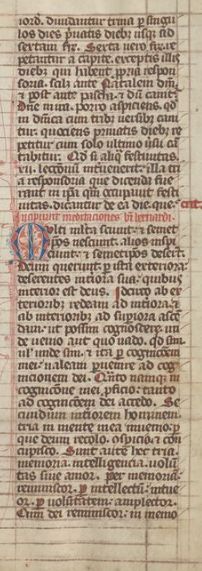- Name: Scripture magic
- Type: Magical discipline

Codices line the libraries of universities and monasteries, how many do you think are magical? How many scrolls of arcane effects line abandoned halls and dungeons, waiting to be found by adventurers?
And along that follow magical formulae, contracts, incantation and words and grids of power. Used here and there, independently or in larger spells.
This discipline also carries other names, mainly after the material they manifest in. Ie, scroll magic, codex magic and so on.
Most prominently is the ability for non-magicians to utilise certain pre-written scrolls to their benefit.
History
The origin of scripture magic can be conjectured to come from rune magic, with which it shares plenty of similarities in it's most basic form but differs greatly in its appearance, implementation and purpose.
Perhaps the emergence of new disciplines forced some strands to adapt to the needs of these new magical ways and the developing cultures and people, by remaining ever-present in it's writing.
While there are many different practices of this discipline all over the world, needless to say, they came down to similar conclusions.
Perhaps the emergence of new disciplines forced some strands to adapt to the needs of these new magical ways and the developing cultures and people, by remaining ever-present in it's writing.
While there are many different practices of this discipline all over the world, needless to say, they came down to similar conclusions.
Usage
Scripture magic was able to survive precisely due to its ability to effectively store magical effects, as well as recite them whenever needed, not only by the author but also by anyone who knew how to activate the written spell.
It is not quite a type of magery but a means to magery, therefore it is advised to know other magical disciplines like necromancy, dark magic, pyromancy and especially divine magic.
Sometimes it's spells are sacral, sometimes offensive, protective, plain obscure or there to set a trap or bind. Another notable usage of such spells is for binding contracts, where names, signatures and blood prove most useful.
It is not quite a type of magery but a means to magery, therefore it is advised to know other magical disciplines like necromancy, dark magic, pyromancy and especially divine magic.
Sometimes it's spells are sacral, sometimes offensive, protective, plain obscure or there to set a trap or bind. Another notable usage of such spells is for binding contracts, where names, signatures and blood prove most useful.
Overview
Unlike its predecessor, Scripture magic has a tremendously steep learning curve, with some scholars being unable to learn it at all. It requires a high grade of finesse and creativity, as well as continuous practice and grinding with little to no results until one reaches an acceptable skill level. But once breaching the skill barrier; shifting from small letters to long codices, turn to a matter of patience and time.
Some say that writing an elaborate spell is like combining various building blocks into a coherent structure. This usually refers to drawings, writing, semantics, embellishments, materials, literary devices, rhymes and so on.
Another thing to consider is, scripture magic often isn't seen via active practitioners, but after the written documents they leave behind. Plenty of such remain in use or dormancy long after the death of the Author, thus many magical spell scrolls can be found by adventurers lining abandoned places or dungeons.
Some say that writing an elaborate spell is like combining various building blocks into a coherent structure. This usually refers to drawings, writing, semantics, embellishments, materials, literary devices, rhymes and so on.
Another thing to consider is, scripture magic often isn't seen via active practitioners, but after the written documents they leave behind. Plenty of such remain in use or dormancy long after the death of the Author, thus many magical spell scrolls can be found by adventurers lining abandoned places or dungeons.
The seven principles and the primal trinity
The basic formulae to any script magic, also known as the primal trinity are; the effect, material and activation.
Thus, when creating a new spell: What effect does the spell cause upon activation, what material it is made of and how the spell is activated.

Thus, when creating a new spell: What effect does the spell cause upon activation, what material it is made of and how the spell is activated.

- Modularity. Script magic can be used independently or in conjuncture with other magical disciplines. Different unique features like semantics, signatures and blood-markers can be used to build various unique spell effects.
- Form. The form varies greatly per region of origin, generally depending on what materials are available in each geographic location as well as language, culture and art. Some regions use tablets or letters, others book or scrolls. Often various materials denote a type of magery like massive codexes often being tomes of necromantic or divine magic while small scrolls often hold one-use spells like fireballs or healing spells. Some can manifest as scribbles on a table or graffiti on the wall.
- Effect. The effect of the stored spell is not passive and gives no benefit to the wielder until activated. (It is a way to differentiate between a magic codex and an enchanted codex). Scripture magic stores spells from various disciplines in writing or building new spells through carefull use of characters and illustrations.
- Material. Different regions use different materials. Some places use chestnut ink, others use ink from soot. It may not matter much what heavily processed material is in use, but usually heavy embellishments with tinctures and metals add to the spell effectiveness. [1]
There is, however, an exception...unaltered blood (and cuttlefish ink for example) work as a shorthand for the entity from which it was taken. This way a written spell would have something to do with or direct an effect towards it. [2] - Activation. Different types of magic require different types of activation methods. The most common type of activation is the reading of the document, which is called incantation. Some other methods also include, but are not limited to, change of weather, a word of power or a password, a whiff of magic or the destruction or tearing of the document.
Multiple activations are also frequent for larger bodies of work. [3]
One does not need to be a mage to activate some of the spells. - Price. The price is paid by the materials in usage, the elaborate and length of the texts, as well as the method of triggers. All of which ultimately comes down to how much effort, thought and time the author put into his work. Sometimes part of the price is transferred over to the spell activator, most notably with incantation.
- Semantics. Words of power hold value, so do the names of people and things. And the effects of scriptures are often dictated by the zeitgeist and language in which they were written.
Limitations
- Skin and blood are inadequate substitutes to strengthen spells, doesn't matter if it's your's or that of a dragon. It is a common accident for novices to burn themselves with their new fire scrolls written in their own blood, for their own blood marks them as the recipient of the fireball. However, this trait comes useful in creating shortcuts for actors/people in various spells. Note that alternatives and workarounds to defining actors exist (see semantics). Blood is mostly useful when an effect is enacted upon specific people or yourself.[4]
- These spells seem eternal, but this comes from the limits of observation. Preserved and well-constructed scripts will seemingly never fade in effect. However, nothing can escape the flow of time, and as materials degrade, letters smudge, fade and chip, so too the spells eventually decay as the material they lay upon turns to dust.
- Sometimes mages and even commoners try to draw upon an effect that the item simply cannot pay for. Such a lapsus in time and space tends to be corrected by an outer force.
- Scripture magic is rather predictable, with effects in new spells being less random and more in line with the range of expected. And when something is inadequate, the spell is more likely to not work at all than backfire in some unpredictable way.
Lore
Due to the scale of Arethil, distribution, opinions and other such things vary greatly. Roleplayed opinions and practitioners hold far more merit than this part of the article could ever convey.
References
This page has been seen 3,559 times.
-
-
Created by onLast updated by on
-
